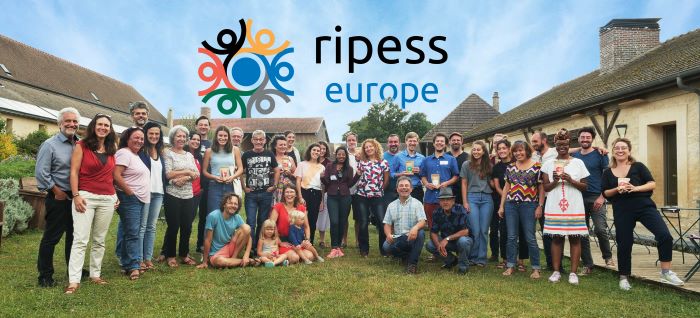Who we are
RIPESS Europe – Solidarity Economy Europe, was born from the synergy produced by the meetings of the Globalisation of Solidarity organised by the intercontinental network RIPESS Intercontinental, the first of which took place in Lima in 1997. The 4th International Forum of “Globalisation of Solidarity”, Lux’09, which took place in Schifflange in April 2009, led to the launching of a dynamic by establishing trust and shared-knowledge between networks of the social and solidarity economy (SSE) at continental and intercontinental levels. During this meeting, Eric Lavillunière (INEES) and Christine Gent (WFTO) initiated the structuring of a European RIPESS platform.
In Barcelona, in 2011, RIPESS Europe was born. It included representatives of networks from Belgium, Catalonia, France, Spain, Hungary, Italy, Luxembourg, Portugal, Romania and Germany.
News from Europe—
Launching the preparation of the World Social Forum of Convergence of Transformative Economies, Barcelona 2019 & 2020.
The Other World already exists. It is time to join forces and build an Inclusive World Agenda! As announced in the World Social Forum of Salvador de Bahia (read March 2018 article), we have committed to starting a process of convergence, between all initiatives, movements and ways of understanding the economy that share the common goal of transforming the [...]
Good economy conference hosting the RIPESS Europe General Assembly
On the 15th of June 2018, the 5th Good Economy Conference will take place, followed by the 7th General Assembly of RIPESS Europe (April 16-17). Organized by the Green Network of Activists Groups and the Platform for Good Economy, these two meetings are taking place in Zagreb, Croatia. You’re all invited to participate! The Good Economy Conference became in the past years a [...]
Strengthening the SSE Networks and converging Movements: the Orientation of the New RIPESS Coordinator
RIPESS is continuing to building alliances between alter-economic movements, and has appointing Jason Nardi of RIPESS Europe as its new coordinator. Jason has a long-standing commitment to the emergence of the Social Solidarity Economy and RIPESS. He is a co-founder of Solidarius in Italy, an organization that supports the development of networks of solidarity economy and part of the Solidarius [...]





